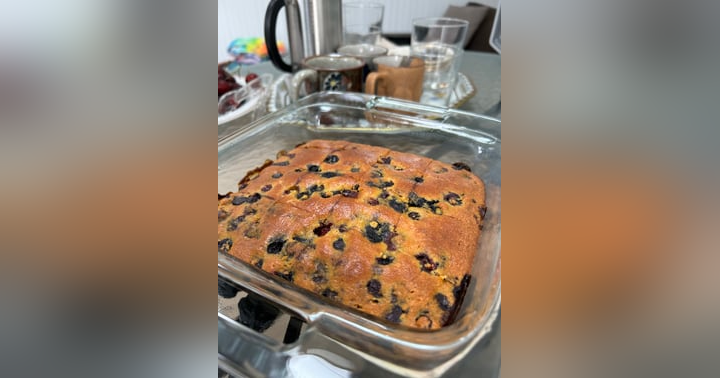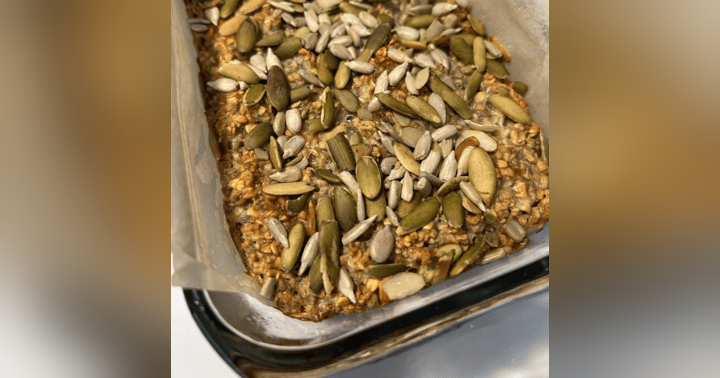A Plum by Any Other Name.... Prunes!

Prunes contain several things that give them a gentle laxative quality, keeping you comfortably regular without overstimulating your system.
Insoluble fiber. What's insoluble fiber? It is a type of fiber that doesn’t break down in the gut and can be helpful in addressing constipation - and prunes are a great source of insoluble fiber.
Sorbitol - Prunes contain this naturally occurring alcohol sugar which is an osmotic laxative. That means it helps to move water into the intestines to soften what is passing through - or what needs to pass through but might be "stuck." You may have seen sorbitol as an ingredient in low-calorie, sugar-free treats. Prunes come by it naturally. 10 prunes contain about 15 grams of sorbitol per 100 grams!
Neochlorogenic and chlorogenic acids - Found in prunes (also found in coffee, peaches, apricots, rosemary leaves, and cherries), these plant compounds provide a laxative effect. Chlorogenic acid has also been shown to have anti-cancer effects on cancer cells in the lab.
Prunes also may play a part in lowering the risk of bone loss, by reducing inflammation and oxidative stress. No matter what you call them—prunes or dried plums—these little fruits have major health benefits!
YAKIMA FRUIT PASTE
This fruit paste recipe, or some incarnation of it, has been passed around for years. Experiment making it with different dried fruits, like cherries or apricots, but be sure to keep the prunes as part of the recipe!
Serving size: 1–2 tablespoons per day
Ingredients:
- 2 senna tea bags
- 16 oz water
- 8 ounces prunes
- 8 ounces raisins
- 8 ounces figs (dried or fresh)
- 1/4 cup brown sugar
- 1/4 cup lemon juice
- 1/2 cup prune juice
Instructions:
1. Place the tea bags in a large pot. Boil the water and pour over tea bags; set aside to steep for 10 minutes.
2. Remove the tea bags.
3. Add the dried fruit to the tea in the large pot and boil the mixture for five minutes.
4. Remove from heat and stir in brown sugar and lemon juice. Allow to cool.
5. Blend the mixture into a smooth paste using a blender or food processer.
6. Slowly add prune juice to the mixture until it is a spreadable consistency.
7. Store fruit paste in a container (glass, plastic, or metal) and freeze. The mixture will not harden.
8. Spread the fruit paste on whole wheat toast, add it to hot water to make a tea, or eat it right off the spoon.
9. Increase daily fruit paste as needed. If stools become too loose, cut back on how much paste you are eating.
Variations:
-
Add in other dried fruit, like cherries or apricots, or swap out one of the other fruits (but leave in the prunes!)
-
Honey may be used in place of the brown sugar, use slightly less than 1/4 cup, and allow the mixture to cool slightly before stirring in the honey.
Recipe adapted from here.

Here’s a Bonus Recipe that has also been shown to be tried and true for relieving constipation. Drink it warm, but don’t boil it.
Prerry [Prune + Cherry] Juice
Mixing in the tart cherry juice to prune juice lessens the sweetness of the prunes and makes a tasty nighttime beverage that will wake up your bowels by morning! Good morning to you!
Serving size: 1 cup
Ingredients:
1/2 cup prune juice
1/2 cup tart cherry juice
Instructions:
1. Add prune and cherry juices to a small saucepan and heat 3-4 minutes until warm but do not allow the mixture to boil.
2. Drink at bedtime to support regular bowel movements in the morning.
Variations:
-
Add juices to a mug and microwave for a minute. Continue to heat for 10-second intervals until warm.
-
Raise the drink to the next laxative level by adding a tablespoon of butter to the juice and allowing it to melt before drinking.



